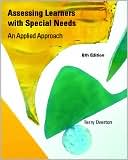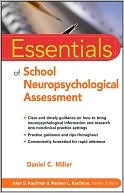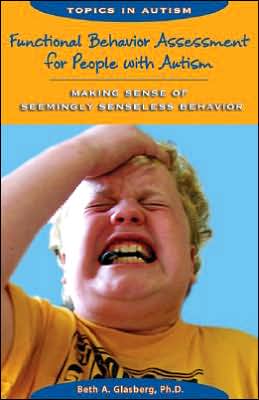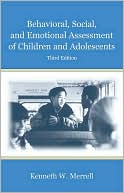Peer Rejection: Developmental Processes and Intervention Strategies
Addressing the widespread and painful problem of chronic peer rejection, this volume combines up-to-date research and practical strategies for school and clinic-based intervention. An innovative developmental framework is presented for understanding why certain children face rejection, the peer group dynamics involved, and implications for social-emotional development and mental health. Strategies for assessing rejected children are discussed in detail, with attention to individual social...
Search in google:
Addressing the widespread and painful problem of chronic peer rejection, this book combines up-to-date research with practical strategies for school- and clinic-based intervention. An innovative developmental framework is presented for understanding why certain children face rejection, the peer group dynamics involved, and implications for social-emotional development and mental health. Strategies for assessing rejected children are discussed in detail, and guidelines are provided for implementing social competence coaching programs and other effective interventions. Illustrative case studies and interviews are featured throughout.
I. Understanding Problematic Peer Relations\ 1. The Developmental Significance of Peer Relations\ 2. Characteristics of Rejected Children\ 3. Rejection Processes: The Role of Peers\ 4. Peer Relations and the Developing Self\ \ II. Assessing Social Competence and Peer Relations\ 5. Assessment Goals and Strategies\ 6. Assessing Problematic Peer Relations\ 7. Assessing Social Behavior\ 8. Observing Peer Interactions\ 9. Assessing Self-System Processes\ \ III. Intervention Methods\ 10. Approaches to Intervention\ 11. The Design of Social Competence Coaching Programs\ 12. Intervention Process and the Promotion of Self-System Change\ 13. Collateral Interventions for School and Home\ 14. Future Directions\ \ Appendix. Description of Exemplar Session Activities
I. Understanding Problematic Peer Relations1. The Developmental Significance of Peer Relations2. Characteristics of Rejected Children3. Rejection Processes: The Role of Peers4. Peer Relations and the Developing Self II. Assessing Social Competence and Peer Relations5. Assessment Goals and Strategies6. Assessing Problematic Peer Relations7. Assessing Social Behavior8. Observing Peer Interactions9. Assessing Self-System Processes III. Intervention Methods10. Approaches to Intervention11. The Design of Social Competence Coaching Programs12. Intervention Process and the Promotion of Self-System Change13. Collateral Interventions: Providing Support at School and Home14. Future Directions Appendix. Description of Exemplar Session Activities
\ From the Publisher"Bierman's book was exactly what I needed as one of the primary texts for my Children's Social Reasoning course. It is a research-to-practice-focused work that is readable for undergraduates while sufficiently sophisticated for graduate students."--Helen Swanson, PhD, Department of Psychology, University of Wisconsin-Stout\ "I use Peer Rejection as a supplemental text for my course entitled Bullying Behavior in Schools. Karen Bierman explains the origins and development of many of the dynamics associated with the problem of bullying, and supports her presentation with solid theory and research. She then goes on to offer ideas for intervention, based on her findings, that can enhance the efforts of schools to reduce the harm done to students through bullying."--John Bly, MEd, Adjunct Instructor, Marian College, Fond du Lac, Wisconsin\ "This superb book is the first comprehensive treatment of the subject of peer rejection and friendships in childhood and adolescence since Asher and Coie's seminal work in 1990. Since then, the field has seen significant advancements in empirical research and conceptual understandings. Bierman's timely, integrative review draws from diverse literatures in personality, cognitive, social, behavioral, developmental, clinical, and school psychology. She presents a compelling case for complex, transactional models of peer rejection that lead to multi-pronged assessment and intervention approaches. Her point of view is clear: social competence is the result of a complex developmental progression, and interventions must move beyond a focus on children's skills to encompass a broader spectrum of factors and systems. Enhancing her stellar research is the perspective Bierman brings as a seasoned clinician. This is a 'must read' for researchers in peer relations and for anyone designing interventions to promote children's social competencies."--Jan N. Hughes, PhD, Department of Educational Psychology, Texas A & M University\ "This volume provides an invaluable tool to researchers, theorists, and practitioners interested in peer rejection and peer relations in childhood. Drawing on her combined research and clinical experience, Dr. Bierman has created a richly textured picture of the development of peer rejection and what can be done to reduce it. This is truly a tour de force."--Mark T. Greenberg, PhD, Prevention Research Center, The Pennsylvania State University\ "Over the past 20 years, research on peer relations has revealed the importance of rejection. This scholarly book provides a wonderful overview of the developmental literature in this area. In addition, realistic, insightful, and empirically supported interventions are described and discussed. This is essential reading for both researchers and clinicians."--Thomas J. Dishion, PhD, Child and Family Center, University of Oregon\ \ \ \








